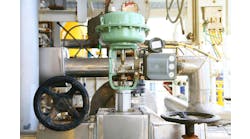The ISA Goes to Washington
Your last paragraph of the June editorial is a broad expression of ISAs plan with industry, government and university relations activities and connectivity. It started a few weeks ago with visits to two Senators and will continue with more visits, invitations to industry summits, academic relations and programs. A small group of ISA, WBF and senior staff members had the opportunity to present our case for automation advocacy under the Automation Federation banner on Capitol Hill.
If our vision for workforce development for the automation profession is going to succeed, our lawmakers have to know who we are, what automation does to the bottom line in industry, how many professional and skilled jobs automation creates and, most important, our critical plans to replace we baby-boomers who got here by accident and evolved with the technology.
In keeping with how most of this year has gone for our leadership team and me at ISA, it has been and continues to be a thrill and a privilege.
Stephen R. Huffman
ISA President, 2007
Why APC Still Lags
I very much appreciate your effort to push the use of APC forward. When I founded my company, ACT, and for the first time saw what other companies and plants are doing in the field of process control, I really was shocked. I never would have expected such a low usage of technology. Not much has change since then: Everybody has the latest and greatest DCSand basically the same controls as decades ago.
Dave Harrold, in his article, What is Taking so Long? in the May issue of Control, is definitely pointing in the right direction, but there are other reasons for the lag:
- Inadequate education: Depending on the level, students learn either nothing about APC or get drowned in differential equations without any connection to real plant equipment and operations objectives.
- Lack of management knowledge. By now, every unit, production or plant manager should know what APC is and what the associated benefits are and how to organize process control for maximum success. In reality 99% have no idea.
- Inadequacy of the DCS: Today, over 40 years after industrial introduction and over 30 years after APC became a standard, control systems still come just equipped with the PID controller−although we should have a full technology set at our disposal right in that system.
Ive had many discussions with Jacques Richalet, the grandfather of model based control, about ways to improve the image and usage of APC. The only mechanism for a real change we see is a major upset in the industry like the two oil crisis in 1972 and 1974 that caused a leap forward in APC usage in the oil industry.
Hans Eder,
ACT
Dave Harrold replies:
Your points are well taken. I would add two things: Government, universities and business must learn to work in harmony for the long term good of our nation; the U.S. education system needs to spend a lot more time and money on basics: reading, writing, and arithmetic; and a lot less time measuring educational success based on color, religion, ethnic background, neighborhood, etc.



